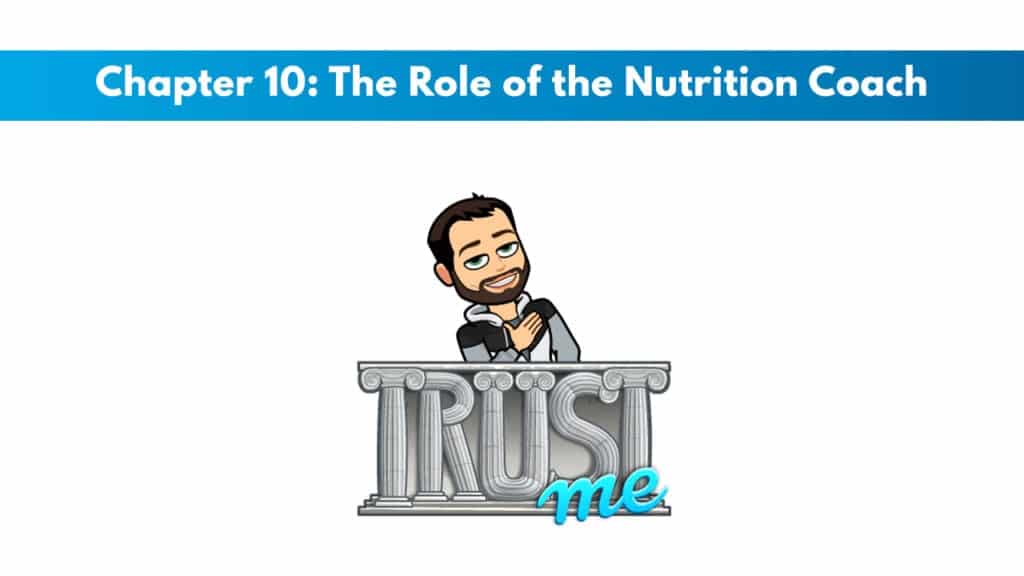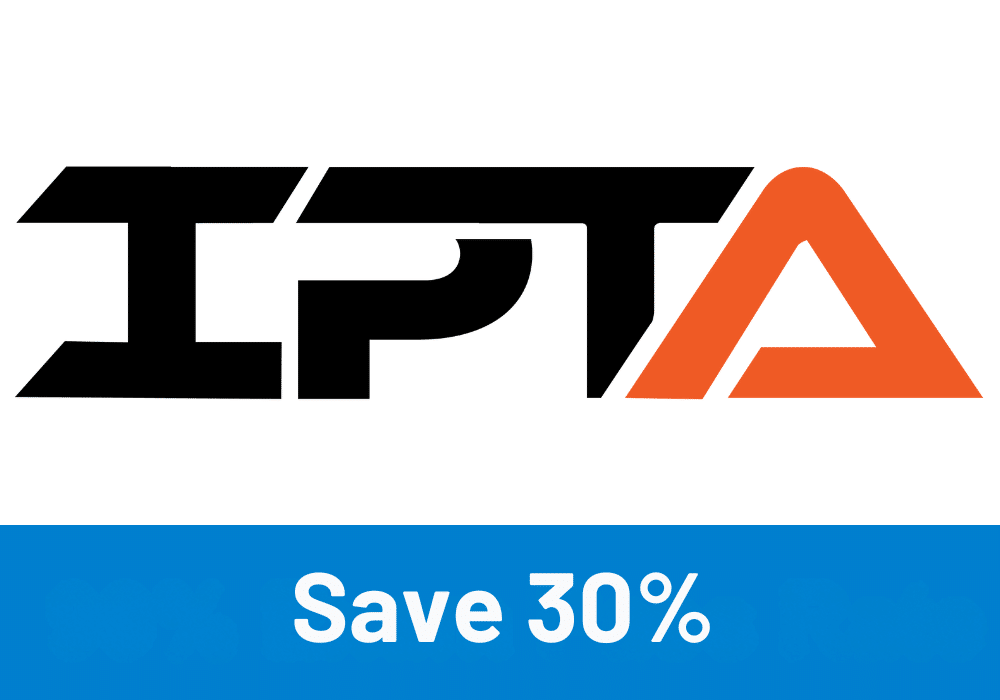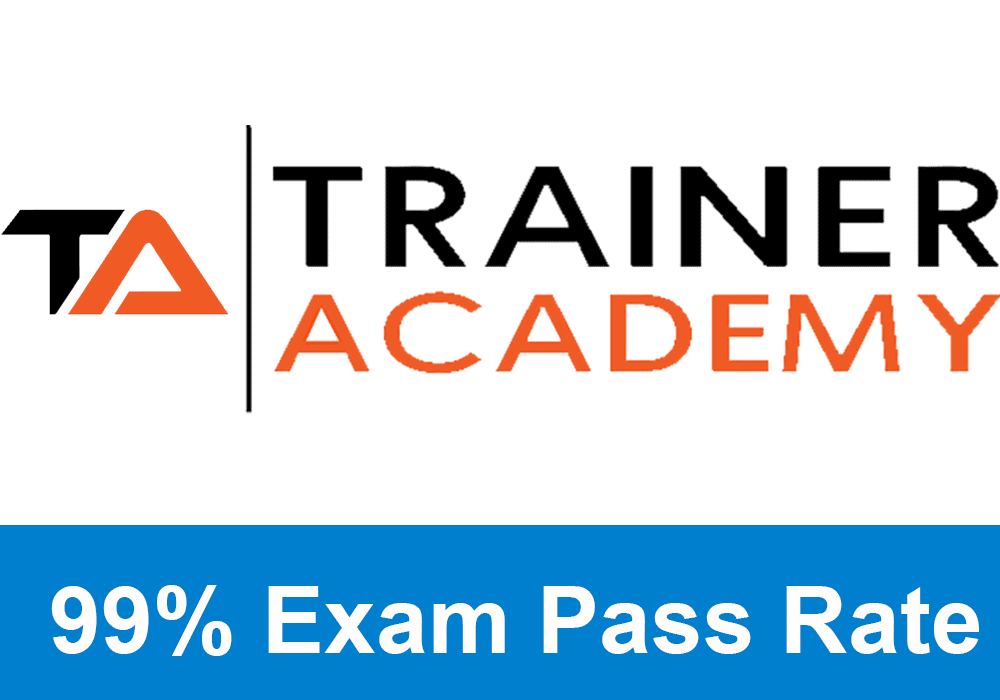
If you have not yet signed up for the ISSA Nutritionist certification, you can get it here for free as part of a special bundle.
Get your copy of the ISSA Nutritionist exam cheat sheet. It helps immensely for studying for the exam.
My PTP students report cutting their ISSA Nutritionist study time and effort in half with Trainer Academy.
Benefit from the Exam Pass Guarantee and Retake Fee Guarantee. Plus, take advantage of my current discount code PTPJULY for 50% off the MVP Program (Ends July 4th, 2025).
Try it out for free here to see if it’s right for you, or read my detailed review for further insights.
Chapter Goals:
- Be able to define the job of a nutrition coach.
- Know the differences between a nutrition coach and a licensed professional.
- Be able to understand the best practices for referring clients to medical professionals.
- Be able to summarize the qualities of an effective nutrition coach.
- Be able to explain the health insurance portability and accountability act.
Introduction
Five million people are thought to go on restricted diet plans yearly, spending around 33 billion dollars on weight loss products. This shows how big of a market there is for nutrition in general.
The most common reason for positive energy balance leading to weight gain is the excess calorie intake and then nutrient shortfalls that contribute.
Some common nutrients lacking in Americans’ diets are vitamins D, calcium, potassium, and fiber.
With all of the advice, information, and resources available about diets, nutrition, and fitness, it can be rather hard for the general public to find the best advice for their situation. This is where the nutrition professional comes in.
What is Nutrition Coaching?
Nutrition coaches do not only act as knowledgeable guides, but they also help to apply the information from clients and their life and health situations.
Every client is unique. They have different health statuses and goals, and the coach has a job to tailor the nutrition to that specific client.
Nutrition Coaching empowers clients to take responsibility for their health by providing resources and nutritional advice and coaching on non-dietary aspects, also.
Scope of Practice
A nutrition coach will find themselves with a diverse population of clients, and some will have pre-existing conditions with their health.
Exclusive PTP CPT Offers |
||
|---|---|---|
Most Popular Cert | Best Online NCCA Cert | Best Study Materials |
Gold Standard Cert | A Good Option | Best CPT for you?  |
The nutrition coach will often deal with clients that struggle with obesity, food addiction, eating disorders, food allergies, and medical conditions.
The scope of practice for nutrition coaches is limited by state and federal laws and what they allow healthcare practitioners to do regarding their education and experience levels.
Every state and province in North America have differing rules for providing nutrition advice.
The only states that don’t have legal limitations on nutritional coaching or nutritionists are Arizona and Michigan. These two states have it legal for both trainers and nutrition coaches to make nutritional suggestions for healthy, active people.
The Academy of disease and dietetics gives a current list of states, statutes, and regulations.
The ultimate goal for the scope of practice is to allow the nutrition coach to give healthy people advice and information, answer general questions about nutrition, and make a plan with the clients to reach their nutrition goals.
Nutrition coaches often suggest sleep levels, adequate hydration, and pre and post workout nutrition.
Some other things that coaches may offer to help with are the topics of Calorie management strategies, food selection, food timing, and healthy lifestyle choices.
Some nutrition coaches CAN DO’s are:
- Provide general nutrition information like the role of fats, carbs, and proteins or healthy sources of those macronutrients.
- Share their research regarding the absorption, effects, or uses of macronutrients or micronutrients for normal and healthy individuals.
- Discuss the information, advice, tips, or research about effective behavior change strategies and reaching set nutrition goals.
Some nutrition coaches Can’t Do’s are:
- Diagnosis, treatment, or the giving of advice for medical nutrition needs.
- Offering treatment advice for specific medical conditions.
- Offering treatment advice for any mental health conditions or eating disorders.
- Discuss personal relationships, career, and life advice.
Referring Clients
It is important for nutrition coaches to create a network for referral of their clients since the scope of practice limits what they can do, and often clients will want things outside of those limitations.
Here is a list of some of the common conditions and the professionals to which that client would be referred:
- Disordered eating – therapists, psychologists, and clinical social workers specializing in eating disorders.
- Digestive issues – Gastroenterologist
- High Blood Pressure – Physician or cardiologist
- Food Allergies – Allergist or Physician
- Diabetes – Endocrinologist
- Thyroid Issues – Endocrinologist
- Sinus Issues – Physician or ear, nose, and throat specialists
Building basic relationships with various professionals may lead to them using you for referrals when their clients wish to have your nutrition services.
A nutrition coach can market their services to these other professionals to generate excitement and stay relevant.
Qualities of an Effective Nutrition Coach
Nutrition coaches have unique opportunities to affect people’s nutritional habits and overall lifestyle choices with well-rounded and inclusive approaches.
There are several qualities to help with being an effective nutrition coach:
Exclusive PTP CPT Offers |
||
|---|---|---|
Most Popular Cert | Best Online NCCA Cert | Best Study Materials |
Gold Standard Cert | A Good Option | Best CPT for you?  |
- Well educated
- Work inside the scope of practice
- Meet the needs of clients
- Assess the clients accurately
- Build rapport
- Motivate other people
- Set the right goals
- Gain commitment
- Build mental toughness
- Refer clients to the right places
- Be professional
Quality and Current Education
All professions need some form of requirements for education and training, and nutrition coaching is not free of that. It is also important for the nutrition coach to stay up to date regarding the current research and information in the field of nutrition.
Working Within the Scope of Practice
To be effective as a nutrition coach, you must know the lines governing the practice scope.
Meeting Client Needs
Like with clients, there are different coaches based on shape, size, and life experience.
Motivational interviewing is important to implement as a coach to be successful. There are five basic steps or principles:
- Resist telling, convincing, or directing clients regarding the right path for them.
- Understand their values, abilities, needs, motivations, and potential barriers to behavior change.
- Listen with both empathy and understanding of the client’s perspectives.
- Empower the client to set achievable goals and provide techniques for which they can do that.
- Encourage both autonomy and self-sufficiency.
Assessing Accurately
Some clients are ready to change, and others have thought about change for a long time and have not taken the steps to do it.
The stages of change, also known as the transtheoretical model, are used to find the readiness to change for the client, and the nutrition coach can use this information to accurately assess the stage of change and match the intervention used for that stage.
The pre-contemplation stage has the client with no intention of addressing a behavior.
The contemplation stage is when the client is aware of the need for change but has barriers to overcoming it.
The preparation stage is when someone desires to change but is also seeking a way to do it.
The action stage is when someone takes the necessary steps to address and change their behaviors.
The maintenance stage is when someone continues to do what is needed for them to keep going with their desired behavior.
Building Rapport
Clients that seek help from professionals will most likely seek a level of comfort and trust with people. Without trust, treatment efficacy is reduced and may even deter the professional relationship.
Motivating Others
Motivation describes the reason for which someone is acting or behaving in a certain way and it is important to identify for people contemplating or making a change.
A nutrition coach is also tasked with keeping clients connected to their own motivations throughout the process to prevent or minimize regressions.
Setting Goals Appropriately
SMART goals are the types of goals we should aim to make.
SMART goals are the ones that are specific, measurable, attainable, realistic, and timely, and they ensure that a client has a clear plan of action.
Goals should be client-appropriately; they should align with the client’s beliefs, values, and motivation.
Gaining Commitment
Lasting lifestyle changes are difficult to make and they may be complicated by external and internal influences.
Commitment is the quality of being dedicated to a cause or goal.
A commitment strategy is a way to gain leverage on oneself or others and make desired changes.
Building Mental Toughness
Mental toughness and grit are used to describe the way a client approaches and responds to adversity and it is closely related to the stages of change that the belief of building mental toughness will have an end goal of self-efficacy and interdependence in thought and process.
Referring to Clients Appropriately
An effective nutrition coach must know when to refer a client to the right medical professional.
Ethical Considerations of a Nutrition Coach
All healthcare providers, fitness and nutrition professionals, and mental health professionals have ethical and legal challenges to consider and to be aware of in their practices.
Client privacy
Protecting the health and medical privacy means that you are maintaining the security and confidentiality of the client’s records. This can mean protecting the client’s records and the healthcare providers’ discretion.
With the introduction of electronic medical records, protecting the privacy of your clients has become an even greater concern. These electronic records risk privacy issues when not stored or handled well.
Health Insurance Portability and Accountability Act
This was enacted to protect the client’s privacy and confidentiality, and it is also known as HIPAA.
The rules of HIPAA are three central ones:
- Privacy rules
- Breach notification rule
- Security rule
These HIPAA laws are put in place and followed by all health professionals.

 Have a question?
Have a question? 



Tyler Read
PTPioneer Editorial Integrity
All content published on PTPioneer is checked and reviewed extensively by our staff of experienced personal trainers, nutrition coaches, and other Fitness Experts. This is to make sure that the content you are reading is fact-checked for accuracy, contains up-to-date information, and is relevant. We only add trustworthy citations that you can find at the bottom of each article. You can read more about our editorial integrity here.